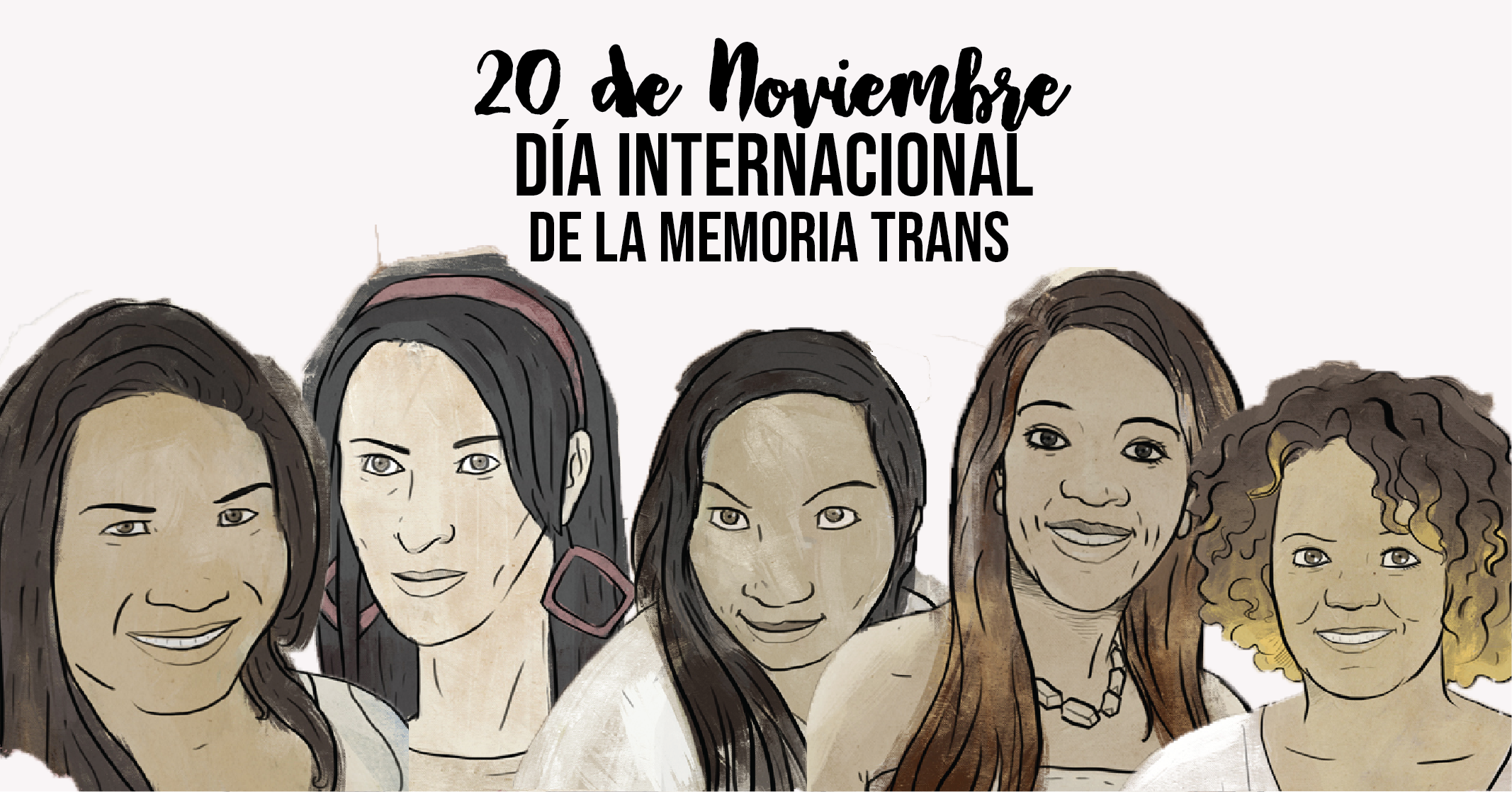November 20 – International Day of Transsexual Memory
“I am convinced that the engine of change is love. The love we were denied is our impetus to change the world. All of the blows and slights I suffered […]

“I am convinced that the engine of change is love. The love we were denied
is our impetus to change the world. All of the blows and slights
I suffered cannot compare with the infinite
love that surrounds me at this time.”
– Lohana Berkins (1965-2016), transvestite activist
On the International Day of Transsexual Memory, the International Institute on Race, Equality, and Human Rights honors the memory of transsexuals who have lost their lives as a result of acts of intolerance, hate, and discrimination due to their gender identity in Latin America and the Caribbean. November 20 is also a day to celebrate the lives of transsexuals who, despite social exclusion, limits on exercising their rights, and the absence of social policies that address their basic needs, continue their fight to defend their rights and construct networks of social transformation starting from their local milieus.
Discrimination, violence, segregation against transsexuals, and diverse gender-based segregation constitute a structural aspect of society; therefore, throughout history, their rights have been subject to a vicious cycle of violence, degradation, and oppression that has made it harder for them to enjoy the guarantees of a decent and complete life.
Around the world, transsexuals are subject to mockery, blackmail, physical and sexual assault, and assassination due to their diverse identities. In addition, they are denied the opportunity to decent employment, medical care in keeping with their needs, and to be seen as subjects worthy of respect and recognition in society. The stigma to which transsexuals are subject leads to the ‘invisibilization’ of their realities and experiences, as well as ignorance regarding the multiple challenges, barriers, and human rights violations they face. It is thus that in the majority of countries, data on violence against transsexuals and gender-diverse persons are not systematically produced; therefore, it becomes impossible to calculate the exact number of cases.
Race & Equality observes with concern how the countries of Latin America and the Caribbean continue to have the highest rates of homicides of transsexuals due to motives of prejudice and discrimination, as well as the rationale of machismo and fundamentalist ideas that ignore the diversity, freedom, and autonomy of individuals to identify and define themselves.
Notwithstanding these adverse contexts of violence, we see throughout Latin America experiences of solidarity and leadership that transcend the margins of social exclusion and make known the social demands of transsexuals. Transsexual leaders are the ones who have been able to impact local public policies, build support networks that have evinced the violence they experience, and above all, generate creative responses for social change from spaces of exclusion.
Race & Equality, within the framework of this commemoration, calls on the States in the region to expand spaces for social dialogue with organizations of transsexuals [and] strengthen the mechanisms for investigating the violence of which this population has been the victim, so as to overcome impunity and jointly define with transsexual leaders social policies of transformation that truly impact their most immediate needs. We are convinced that transsexuals should continue to be remembered for their transformative acts, rather than for the unpunished violence by which they are eliminated.

